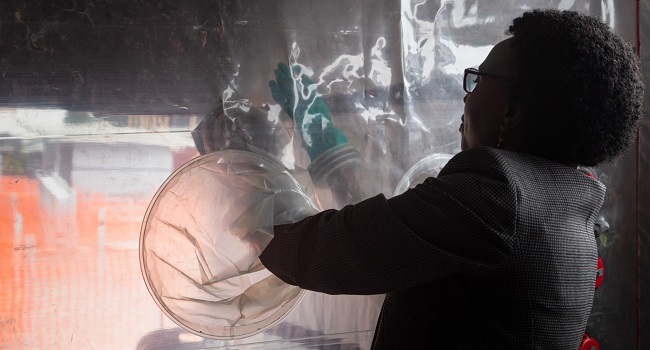
The death toll from an Ebola outbreak in Uganda has risen to seven, the health ministry said Friday, after President Yoweri Museveni ruled out a lockdown to contain the highly contagious virus.
Authorities declared an outbreak in the central district of Mubende last week, the East African nation’s first Ebola fatality since 2019.
On Friday, the health ministry shared a graphic on Twitter showing that the cumulative deaths were now seven, up from five on Wednesday, while the total number of confirmed cases had reached 35.
In a televised press briefing on Wednesday, Museveni said some 19 others classified as probable Ebola cases had also died, but said they were buried before they could be tested for infection.
Since the initial outbreak was discovered in Mubende, infections have been found in three other districts — Kassanda, Kyegegwa and Kagadi — but Museveni vowed not to cordon off the affected regions.
“We decided that we shall not have lockdowns. It is not necessary,” the 78-year-old leader said, telling Ugandans that there was “no need for anxiety”.
Ebola is an often-fatal viral haemorrhagic fever named after a river in Democratic Republic of Congo (DRC) where it was discovered in 1976.
Human transmission is through body fluids, with the main symptoms being fever, vomiting, bleeding and diarrhoea.
Outbreaks are difficult to contain, especially in urban environments.
People who are infected do not become contagious until symptoms appear, which is after an incubation period of between two and 21 days.
At present there is no licensed medication to prevent or treat Ebola, although a range of experimental drugs are in development.
Uganda, which shares a porous border with the DRC, has experienced several Ebola outbreaks, most recently in 2019 when at least five people died.
The DRC on Tuesday declared an end to an Ebola virus outbreak that emerged in eastern North Kivu province six weeks ago.
Only one case of the virus had been confirmed, according to the World Health Organization, making the DRC’s Ebola outbreak its “least catastrophic”.
The worst epidemic in West Africa between 2013 and 2016 killed more than 11,300 alone. The DRC has had more than a dozen epidemics, the deadliest killing 2,280 people in 2020.
AFP




